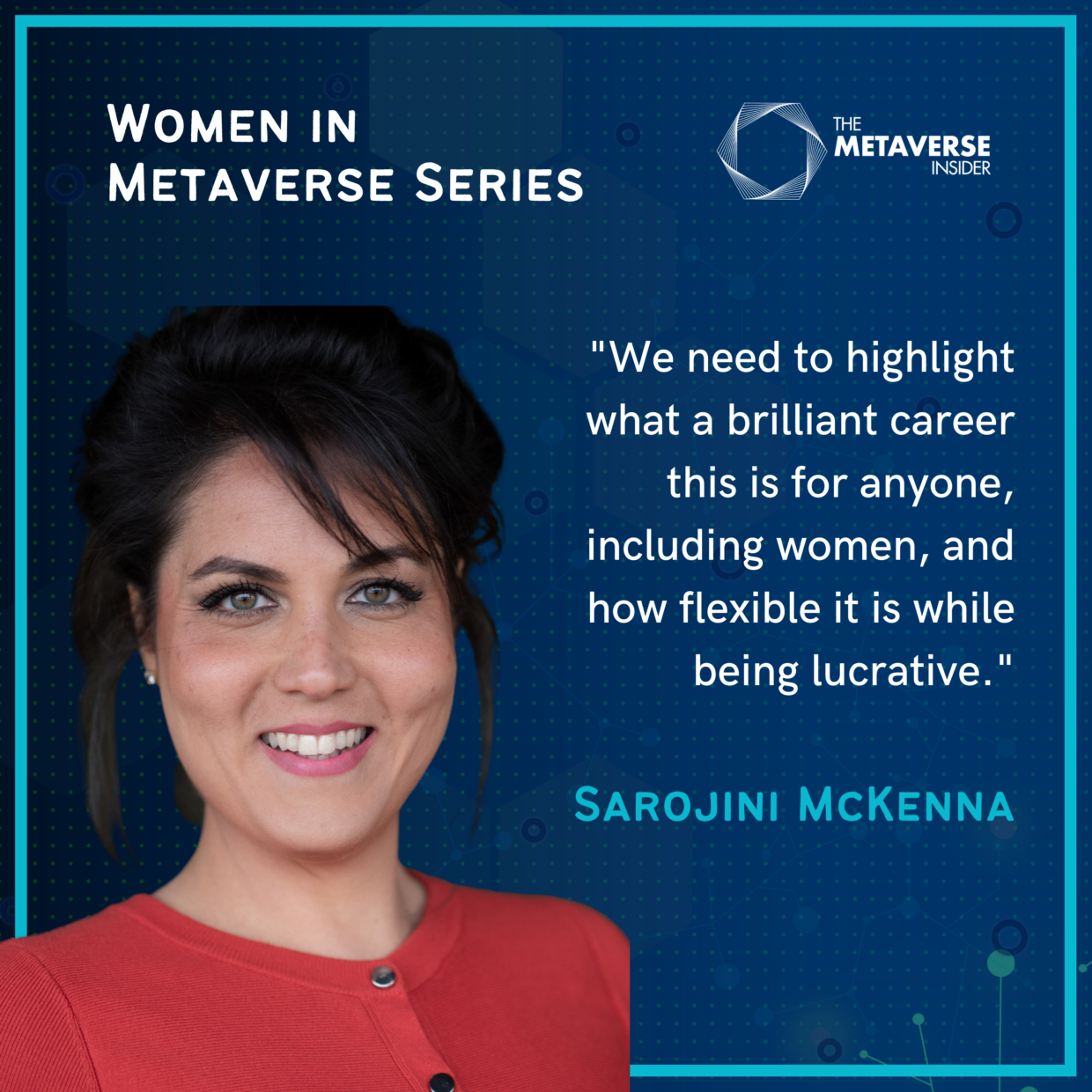The interest in the metaverse’s financial infrastructure has been growing, mainly due to more companies joining this virtual space. One of these interested individuals is Sarojini McKenna, the Co-Founder, and CEO of Dacoco GmbH, a company that builds DAOs (Decentralized Autonomous Organizations). McKenna is also the Co-Founder of Alien Worlds, the biggest game on the blockchain, with over 7.6 million users.
With a blockchain background, McKenna has found herself fascinated by the influence that DAOs have in the metaverse. “Our company (Dacoco GmbH) has been building DAOs since 2018,” she explained. “In fact, the DAO software that we use within the game (Alien Worlds) now is the same as what we have been building this whole time. Because I also have a background in corporate finance, along with blockchain, I’ve been interested in finding a new way of organizing the metaverse financial system that could be a potential challenger to the current financial system.” McKenna found that blockchain and decentralized cryptocurrencies could be key factors in reorganizing the metaverse’s financial infrastructure.
As the CEO of Dacoco GmbH and leader of Alien Worlds, McKenna finds herself busy finding new ways to make an impact. “I sort of hold the vision of what we’re trying to build,” McKenna added. “And I help manage our strategic relationships and issues around technology, though I myself am not a technologist. So, I work with our CTO and others to ask the important questions like how do we work with other Web3 metaverse companies to give users the best experience while positioning ourselves for growth?” McKenna has found that for most of her clients, using DAOs for growth is a novel concept. “We eventually decided that it was a bit too early to convince existing companies to turn themselves into a DAO,” she said. “But, if we can create a DAO as a game component within a sort of gaming environment, that would be easier for people to begin to use the technology and learn how it works.”

With DAOs becoming more widely adopted, McKenna hopes that other companies see the benefits. “The ways that companies already formed themselves, I think, work pretty well for the specific company,” she said. “But what that infrastructure doesn’t do is describe the overall system that the company is in, such as shareholding, debt, or mechanisms within the company.” For McKenna and others, the biggest benefits DAOs can give to a company are total openness and community participation. According to McKenna: “DAOs can govern permissions of the treasury of a company or an account. If you use a token for your DAO, you then have to ask how that token will be distributed. So, for example, if you want your customers to have a say, but you want to retain roles within the system, you can use DAO tokens so every participant is reflected in the structure by holding a token. So, a free-market mechanism is also a good way of ensuring that the tokens end up in the hands of people who are interested in holding that token.” McKenna hopes that other companies will see the value of customer participation and consider becoming DAOs.
To boost female participation in the metaverse, McKenna believes that bringing more awareness to the benefits of metaverse jobs is important for more women to enter this space. “We need to highlight what a brilliant career this is for anyone, including women, and how flexible it is while being lucrative,” she added. “It’s no secret that the metaverse and web3 have attracted an enormous amount of interest and capital in the last couple of years. A lot of that is being invested in people.” According to McKenna, the metaverse needs individuals who are more than coders and developers. This industry also has room for musicians, poets, writers, even lawyers, and others. Because these jobs are flexible, Mckenna also believes this may be a benefit for women who want to be mothers, as they don’t have to worry as much about choosing between having a family and a career.
The unstructured, rapidly growing industry holds other benefits for women as well. “It’s a really good fit for people with an open mind who can work in a less structured job,” McKenna explained. “I think it’s a very empowering place for women and men to work. But for women especially, specifically in cases with imposter syndrome, it’s important to remember that this is a very new industry and nobody knows any better than you do. We are all figuring things out as we go along. I think it’s a great time for women to get into the industry because within a relatively short period of time, you can become somebody who has way more experience than the vast majority of people in whatever it is that you do.”
For more market insights, check out our latest Digital Twin news here.













